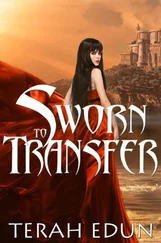'At least in daylight,' I murmured.
'Yes,' said Grettir. 'No one has been bold enough to try a night landing previously, and in future I'll not trust that lazy servant Glaum to keep a look out. He's idle, but he amuses me with his chatter, and the Gods know, one needs a bit of humour and light-heartedness out here, especially in winter.'
'What do you live on?' I asked. 'Food must be very scarce.'
Grettir showed yellow teeth through his dirty tangle of beard. 'My neighbours kindly donate a sheep every couple of weeks,' he said. 'We ration ourselves, of course. There were about eighty animals on the island when we took over, and now we are down to about half that number.'
I did a quick mental calculation. Grettir had been living on Drang for at least a year, probably longer.
'There's one old ram who'll be the last one to be eaten. He's quite tame now. Visits the dugout every day and rubs his horns on the doorway, waiting to be petted.'
'What about water?' I asked.
'We gather rain, of which there is plenty, and when we get really short, there's a freshwater seep over on the east, in an overhang. It oozes a few cupfuls of water every day, enough to keep us alive.'
'Enough to keep four people alive?' I asked.
Grettir took my meaning at once. 'You mean you want to stay?' he asked.
'Yes,' I said. 'If you and Illugi have no objection.'
So it was that I became the fourth member of the outlaw community and for almost a year Drang Island was my home.


Grettir was right: there was no shortage of food on the island, even with an extra mouth to feed. We were able to fish from the beach whenever the winter storms abated, and Grettir and Illugi had already saved an ample store of dried fish and the smoked carcasses of seabirds. For vegetables we ate a dark green weed which grew luxuriantly on the slopes too steep for the sheep to graze. The succulent leaves of this weed — I do not know its name — had a pleasant salty taste, and gave welcome variety to our diet. We had neither bread nor whey, the staple of the farmers on the mainland, but we never went hungry.
Our real struggle was how to keep warm and dry. The roof of the dugout kept out the rain, but the interior was constantly damp from the wetness rising up through the soil and we found it impossible to keep our garments dry. The fireplace was at the back of the dugout against the great boulder so that the stone reflected every bit of precious heat. But the ever-present problem was the scarcity of firewood. We depended on the chance discovery of driftwood. Each day one or other of us would descend the ladders and make a circuit of the island's narrow beach, hoping that the sea had brought us its bounty. Salvaging a good-sized log suitable for firewood was a greater cause for satisfaction than bringing back a string of freshly caught fish. When we found a log or dead branch, however small, we used ropes to hoist it back up the cliff and put it to dry in a sheltered spot. Then we would use an axe to chop the driftwood into kindling or shape a log to keep the fire at a gentle glow all night.
Grettir and I spent many hours in conversation, sometimes seated in the dugout, but more usually out in the open air where our discussions could not be overheard. He confessed to me that he was feeling more and more worn down by his long period of outlawry. 'I've lived over two-thirds of my life as an outlaw,' he said. 'I've scarcely known any other condition. I've never married, never been able to drop my guard in case there is someone ready to kill me.'
'But you've also become the most famous man in Iceland,' I said, trying to cheer him up. 'Everyone knows of Grettir the Strong. Long ago you told me that your reputation was all that mattered to you and that you wanted to be remembered. You've certainly achieved that. The Icelanders will never forget you.'
'Yes, but at what cost?' he replied. 'I've become a victim of my own pride. You'll remember how I swore no one would ever drive me away from Iceland by sending me into exile. Looking back, I see that was a mistake. I trapped myself here with those words. I often regret that I have travelled no further than Norway. How I would have loved to see the foreign lands you have known — Vinland, Greenland, Ireland, London, the shores of the Baltic Sea. I envy you. If I were to travel abroad now, people would say that I am running away. I have to stay here for ever, and that means until someone catches up with me when I am weak or old and kills me.'
Grettir looked out across the fiord. 'I have a premonition that this view is the one I will live and die with. That I will finish out my time on this small island.' Disconsolately he threw a pebble over the cliff edge. 'I feel cursed,' he went on. 'Everything I do seems to have the reverse effect of what I intend. If I start something for the best of reasons, it usually turns out quite differently. People are hurt or harmed by my actions. I never intended to kill that young man who insulted me in the church in Norway, and when I burned those unfortunates in that shore house it was largely their fault. If they had not been so drunk, they would have escaped the fire, which they themselves started.'
'What about that woman over at the farm? I'm told you raped her.'
Grettir looked down at the ground and mumbled his answer. 'I don't know what came over me. It was a black rage, not something I'm proud of. Sometimes I think that living like a hunted animal makes you into an animal. If you live too long away from normal company, you lose the habits of normal behaviour.'
'What about your brother Illugi? Why don't you send him away from here? He doesn't have to be bound to your fate.'
'I've tried a dozen times to persuade Illugi to go back home,' Grettir replied, 'but he is too much like me. He's stubborn. He sees my outlawry as a matter of personal pride. No one is going to dictate to him or his family what they should do and he has a strong sense of family. That's how we were brought up. Not even my mother wants me to surrender. When Illugi and I said goodbye to her before coming here, she said that she never expected to see either of us alive again, but she was pleased we were protecting the family's good name.'
'Then what about Glaum?' I said. 'What part does he play in all this? To me he seems nothing more than a lazy lout, a jester.'
'We met Glaum on our way to the island,' Grettir said. 'It was pure chance. Glaum is a nobody. He has no home, no land, nothing. But he's amusing, and his company can be entertaining. He volunteered to come to the island with us and until he decides to leave I'm willing to let him stay. He tries to make himself useful, collecting firewood, helping haul up the ladders, doing some fishing, generally being about the place.'
'You're not concerned that Glaum might try to attack you, like Redbeard, hoping to gain the bounty money?
'No. Glaum's not like that. He's too lazy, too weak. He's not a bounty hunter.'
'But there's something foreboding about Glaum,' I said. 'I can't define what it is, but I have a feeling that he represents misfortune. I would be happier if you sent him away.'
'Maybe I will,' said Grettir, 'but not yet.'
'Perhaps matters will improve,' I suggested. 'I've heard it said that if a man survives outlawry for a span of twenty years then the sentence is complete. In a couple of years that will be the case for you.'
'I think not,' Grettir answered gloomily. 'Something is bound to go wrong before then. My luck is dire and my enemies will never give up. My reputation and the reward for my death or capture means that any young hothead will have a try at killing me or taking me prisoner.'
Читать дальше










